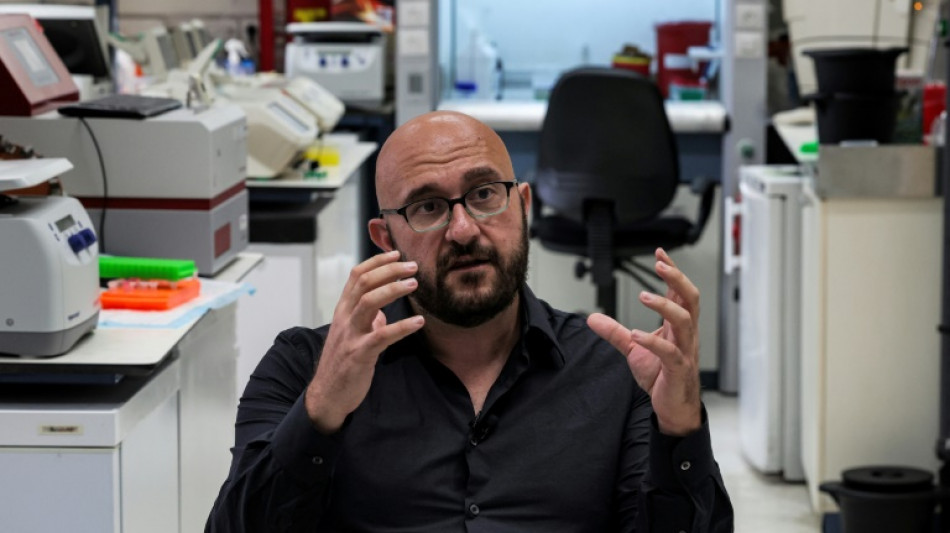
-
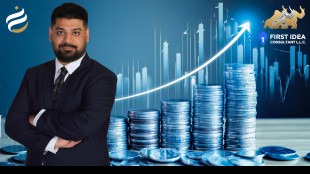 Scandic Trust Group strengthens sales network with First Idea Consultant
Scandic Trust Group strengthens sales network with First Idea Consultant
-
UN warns 'intensified hostilities' ahead in Sudan despite RSF backing truce plan
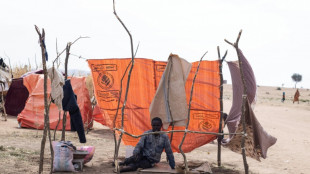
-
 Seven hospitalized after suspicious package opened at US base
Seven hospitalized after suspicious package opened at US base
-
Guardiola says 'numbers are insane' as he reaches 1,000 games in charge

-
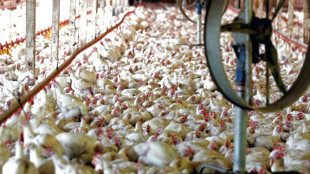 Brazil welcomes China lift of ban on poultry imports
Brazil welcomes China lift of ban on poultry imports
-
Scotland captain Tuipulotu bids for landmark win over All Blacks

-
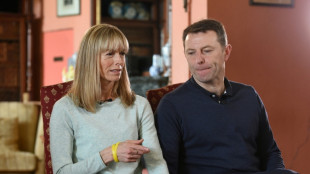 Woman convicted in UK of harassing Maddie McCann's parents
Woman convicted in UK of harassing Maddie McCann's parents
-
Tanzania charges more than 100 with treason over election protests

-
 Nexperia chip exports resuming: German auto supplier
Nexperia chip exports resuming: German auto supplier
-
Genge warns England to beware 'nasty' Fiji at Twickenham

-
 Stocks fall on renewed AI bubble fears
Stocks fall on renewed AI bubble fears
-
UK grandmother on Indonesia death row arrives back in London

-
 Spanish star Rosalia reaches for divine in new album
Spanish star Rosalia reaches for divine in new album
-
Portugal's Mendes out injured as Neves returns for World Cup qualifiers
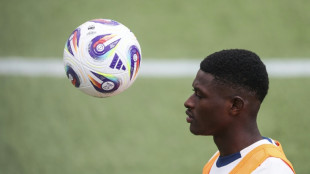
-
 Afghan-Pakistan peace talks push ahead after border clashes
Afghan-Pakistan peace talks push ahead after border clashes
-
Fleetwood in tie for lead at halfway stage in Abu Dhabi
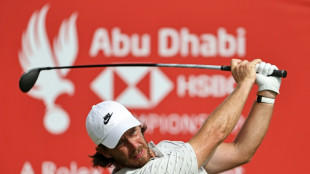
-
 Brazil court starts hearing Bolsonaro appeal
Brazil court starts hearing Bolsonaro appeal
-
Serbia fast-tracks army HQ demolition for Trump family hotel
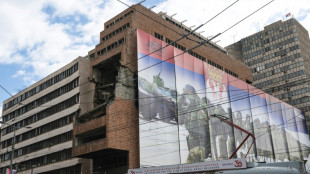
-
 Ireland captain Doris 'mentally stronger' after long break
Ireland captain Doris 'mentally stronger' after long break
-
MSF accuses powerful nations of weakening S.Africa's G20 health text
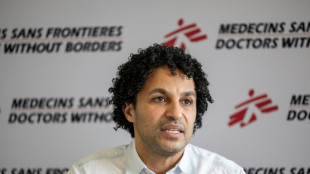
-
 Maresca defends Chelsea rotation policy after Rooney criticism
Maresca defends Chelsea rotation policy after Rooney criticism
-
Hundreds of flights cut across US in government paralysis

-
 Xhaka 'made me a better coach', says Arsenal boss Arteta
Xhaka 'made me a better coach', says Arsenal boss Arteta
-
Central Nigerian town rebuilds religious trust in shadow of Trump's threat

-
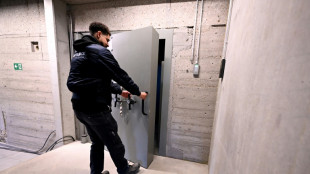 Inside Germany's rare earth treasure chest
Inside Germany's rare earth treasure chest
-
Former jihadist Syrian leader makes unprecedented White House visit

-
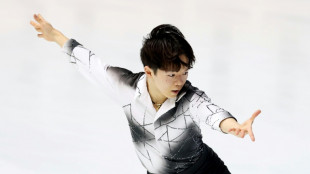 Kagiyama takes NHK lead in Japan to kick-start Olympic season
Kagiyama takes NHK lead in Japan to kick-start Olympic season
-
Ikea profits drop on lower prices, tariff costs
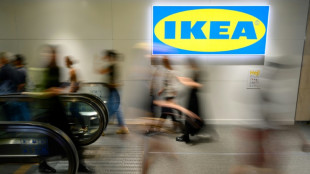
-
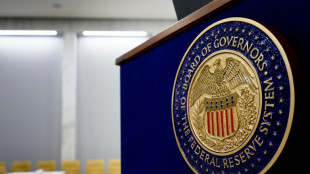 European, Asian stocks decline after Wall Street slide
European, Asian stocks decline after Wall Street slide
-
Tuchel brings 'immense' Bellingham and Foden back into England fold

-
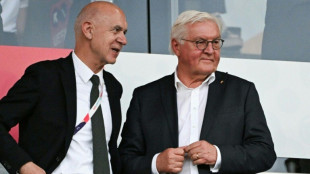 German FA extends with president Neuendorf until 2029
German FA extends with president Neuendorf until 2029
-
No end to Sudan fighting despite RSF paramilitaries backing truce plan
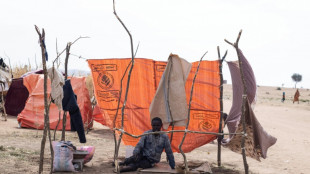
-
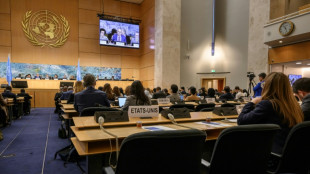 US officials, NGOs cry foul as Washington snubs UN rights review
US officials, NGOs cry foul as Washington snubs UN rights review
-
Injured teen medal hope Tabanelli risks missing home Winter Olympics
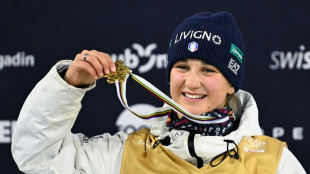
-
 Bellingham, Foden recalled to England squad for World Cup qualifiers
Bellingham, Foden recalled to England squad for World Cup qualifiers
-
Tanzania rights group condemns 'reprisal killings' of civilians

-
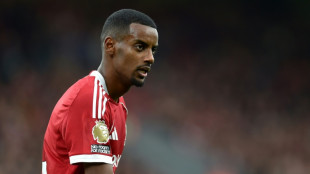 Slot urges patience as Isak returns to training with Liverpool
Slot urges patience as Isak returns to training with Liverpool
-
Rees-Zammit set for Wales return with bench role against Argentina

-
 China's new aircraft carrier enters service in key move to modernise fleet
China's new aircraft carrier enters service in key move to modernise fleet
-
Operation Cloudburst: Dutch train for 'water bomb' floods

-
 Leaders turn up the heat on fossil fuels at Amazon climate summit
Leaders turn up the heat on fossil fuels at Amazon climate summit
-
US travel woes mount as govt shutdown prompts flight cuts

-
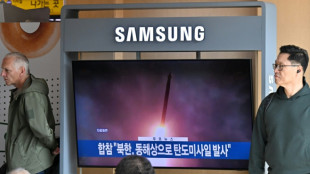 North Korea fires unidentified ballistic missile: Seoul military
North Korea fires unidentified ballistic missile: Seoul military
-
West Bank's ancient olive tree a 'symbol of Palestinian endurance'
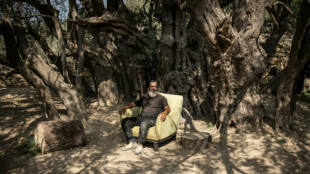
-
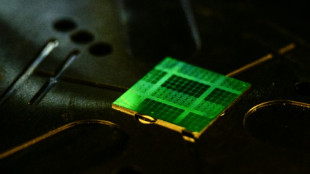 Global tech tensions overshadow Web Summit's AI and robots
Global tech tensions overshadow Web Summit's AI and robots
-
Green shines as Suns thump Clippers 115-102

-
 Japan to screen #MeToo film months after Oscar nomination
Japan to screen #MeToo film months after Oscar nomination
-
Erasmus relishing 'brutal' France re-match on Paris return

-
 Rejuvenated Vlahovic taking the reins for Juve ahead of Turin derby
Rejuvenated Vlahovic taking the reins for Juve ahead of Turin derby
-
'Well-oiled' Leipzig humming along in Bayern's slipstream


Lab-grown human 'embryos' offer new research hope
Scientists have developed human embryo-like structures without using sperm, an egg or fertilisation, offering hope for research on miscarriage and birth defects but also raising fresh ethical concerns.
Earlier this year, several labs around the world released pre-print studies describing their development of early human embryo-like structures.
That work has not yet been peer-reviewed, but now one group's research has been published in the journal Nature, describing how they coaxed human embryonic stem cells to self-organise into a model resembling an early embryo.
The research was welcomed by some scientists as an "impressive" advance that could help unlock secrets about the precarious early stages of pregnancies, when failure is most common.
The work will however renew debate on the need for clearer ethical rules on development of lab-grown human embryo models.
The researchers, led by Palestinian scientist Jacob Hanna at the Weizmann Institute in Israel, harnesses the power of embryonic stem cells, which can become any kind of cell.
They produced embryo models up to 14 days old, which is the legal limit for such research in many countries, and the point at which organs like the brain begin to develop.
The researchers say their work differs from those of other teams because it uses chemically rather than genetically modified embryonic stem cells and produces models more like real human embryos, complete with yolk sac and amniotic cavity.
These similarities could make the models more useful for research into conditions like miscarriage, birth defects and infertility, said James Briscoe of Britain's Francis Crick Institute.
The model "seems to produce all of the different types of cells that form tissues at this early stage of development," said Briscoe, principal group leader and associate research director at the biomedical research charity.
The research "is a step towards opening a window on the period of human development where many pregnancies fail and which has been really difficult to study up until now."
Both the researchers and scientists not involved in the work emphasised that the models should not be considered human embryos.
The structure "highly resembles, but (is) not identical, to the in utero situation", the research notes.
The success rate on generating the models was also low, with the stem cells organising correctly just a small percentage of the time.
Still, the research and other recent work shows "that models of human embryos are getting more sophisticated and closer to events that occur during normal development," said Darius Widera, an expert in stem cell biology at the UK's University of Reading.
The work highlights "that a robust regulatory framework is more needed than ever before", he added.
In Britain, Cambridge University has begun developing the first governance framework for stem cell-based human embryo models.
The Weizmann Institute research does not involve transferring the models into a human or animal womb, or developing the structures beyond 14 days.
D.Khalil--SF-PST



